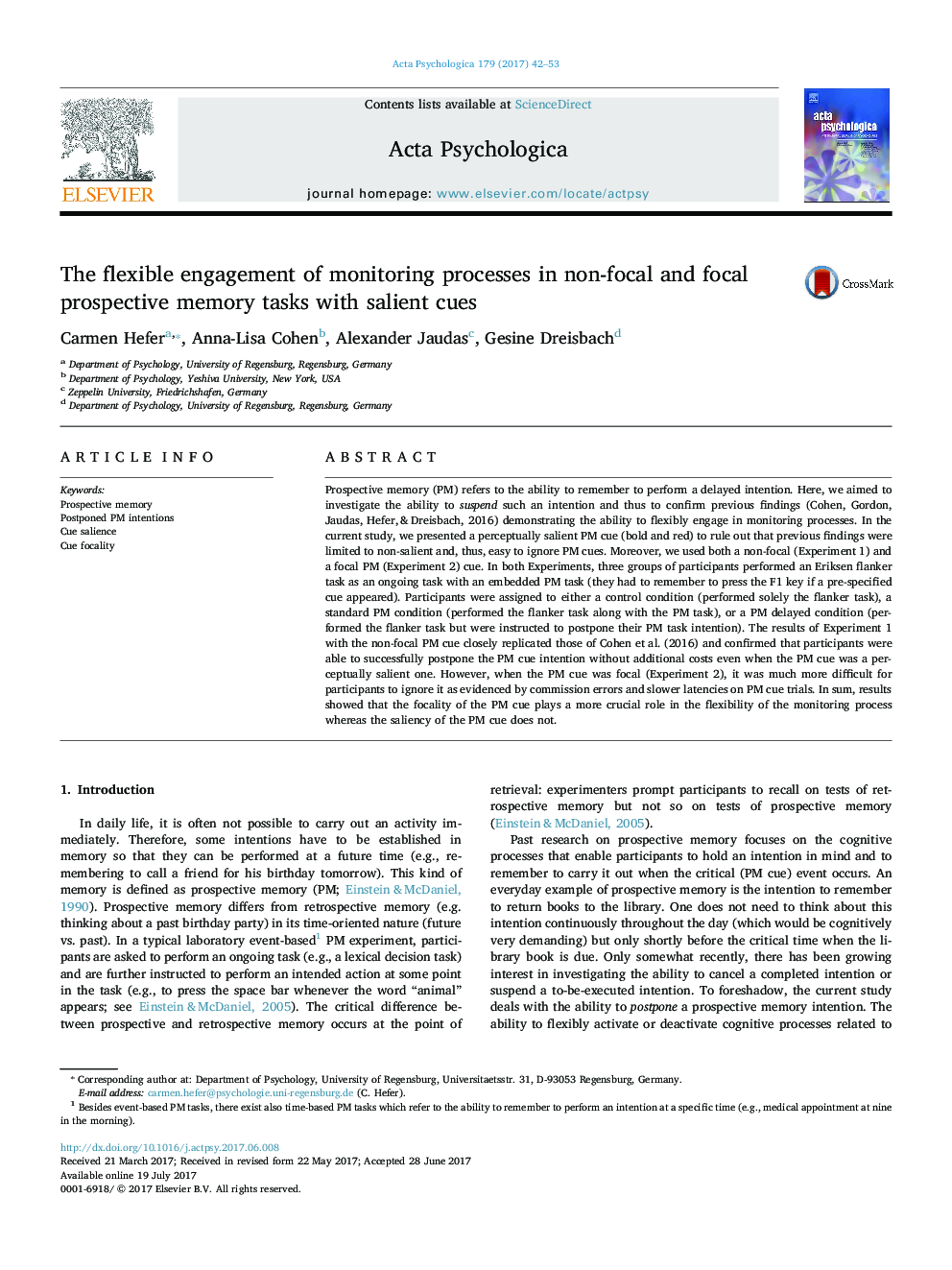| Article ID | Journal | Published Year | Pages | File Type |
|---|---|---|---|---|
| 5040221 | Acta Psychologica | 2017 | 12 Pages |
â¢Demonstration of flexibility of monitoring processes even with a salient cueâ¢Focality led to reducing monitoring processes but increasing commission errorsâ¢Salience had a negligible impact on PM cue intention postponement
Prospective memory (PM) refers to the ability to remember to perform a delayed intention. Here, we aimed to investigate the ability to suspend such an intention and thus to confirm previous findings (Cohen, Gordon, Jaudas, Hefer, & Dreisbach, 2016) demonstrating the ability to flexibly engage in monitoring processes. In the current study, we presented a perceptually salient PM cue (bold and red) to rule out that previous findings were limited to non-salient and, thus, easy to ignore PM cues. Moreover, we used both a non-focal (Experiment 1) and a focal PM (Experiment 2) cue. In both Experiments, three groups of participants performed an Eriksen flanker task as an ongoing task with an embedded PM task (they had to remember to press the F1 key if a pre-specified cue appeared). Participants were assigned to either a control condition (performed solely the flanker task), a standard PM condition (performed the flanker task along with the PM task), or a PM delayed condition (performed the flanker task but were instructed to postpone their PM task intention). The results of Experiment 1 with the non-focal PM cue closely replicated those of Cohen et al. (2016) and confirmed that participants were able to successfully postpone the PM cue intention without additional costs even when the PM cue was a perceptually salient one. However, when the PM cue was focal (Experiment 2), it was much more difficult for participants to ignore it as evidenced by commission errors and slower latencies on PM cue trials. In sum, results showed that the focality of the PM cue plays a more crucial role in the flexibility of the monitoring process whereas the saliency of the PM cue does not.
